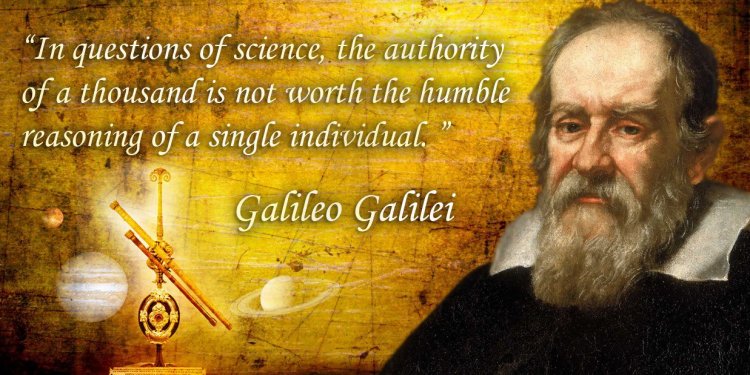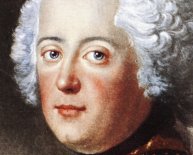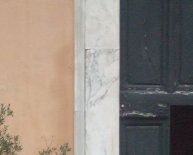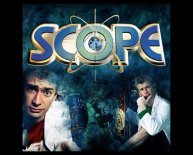
Galileo Galilei Life

1. Dates Dates Certain Lifespan: 78 2. Father Occupation: Musician, Merchant Vincenzio Galilei was descended from a Florentine patrician family. He himself was a distinguished musician. He was not an economic success. He died leaving his oldest son (Galileo) with heavy financial responsibilities but no assets. Financial stringency forced the father into commerce and made him move to Pisa, where Galileo was born. Everything is relative. I cannot see that Galileo grew up impoverished for all the talk of his father's lack of success. I list the financial position as unknown. 3. Nationality Birth: Italian Career: Italian Death: Italian 4. Education Schooling: Pisa As a boy he was tutored in Pisa. The family returned to Florence about 1575, and Galileo went to the school of the monastery at Vallombrosa. He entered the order as a novice in 1578, but did not pursue the clerical life. He enrolled in Pisa in 1581 as a medical student, but left without a degree. Galileo was attracted to mathematics and studied it under Ostillio Ricci in 1583. After he left Pisa, he studied mathematics privately. 5. Religion Affiliation: Catholic It is known to everyone that Galileo was denounced to the Inquisition in 1615 and that he was tried and condemned by the Inquisition in 1633, living the rest of his life under house arrest. All of this was for Copernicanism, not for any heretical theological views. 6. Scientific Disciplines Primary: Primary: Phc, Mechanics, Astronomy Subordinate: Mathematics, Optics, Natural Philosophy I won't try to list many details of a scientific career that is very well known. De motu while at Pisa; Le mechaniche in the early 90's; work on motion during the first decade of the 17th century, with the composition of a treatise; the Discorsi in 1638. Telescopic observations, together with some thought on light and sight beginning in 1609. Il saggiatore, a work of many dimensions, including method and natural philosophy in general. The Dialogo, far and away the leading polemic for the Copernican system, in 1632. The dispute on floating bodies, 1611-12. 7. Means of Support Primary: Academia, Patronage, Schoolmastering Secondary: Instruments During 1585-9 Galileo gave lessons in mathematics in Florence and Siena. 1588, applied unsuccessfully for the chair in mathematics at Bologna. 1589, appointed to the chair in mathematics at Pisa; there until 1592. 1592, appointed to the chair in mathematics at Padua; there until 1610. In Padua he gave private instruction in military engineering, mechanics, and astronomy, and made his home into a hostel for his students. While in Florence he continued to give private lessons-e.g., Guiducci and the two Arrighetti; there is no reason to think those three exhaust the number. While in Padua he produced his geometric and military compass and other instruments for sale. Before he returned permanently to Florence, Galileo came back during several summers to instruct the crown prince in mathematics. 1610, appointed Mathematician and Philosopher to the Grand Duke Cosimo II, with a stipend of 1000 scudi. He was also professor of mathematics at Pisa, without obligation to teach or to reside in Pisa, and in fact his annual stipend came from the budget of the university. Nevertheless I treat this as patronage rather than an academic appointment. Galileo remained in this position for the rest of his life. 8. Patronage Types: Scientist, Aristrocrat, Eccesiastic Official, Court Official, City Magistrate 1588, Guidobaldo del Monte supported his application to the University of Bologna. 1589, the same to Pisa. 1592, the same to Padua. I could categorize Guidobaldo as an aristocrat, but it seems more correct to categorize him here as a scientist. In Padua he formed friendships with Sagredo and with other Venetian patricians, including Aproino who also got into one of Galileo's dialogues. He mobilized his patrician friends to lobby for his reappointments in 1598 and 1604. In 1604 Galileo instructed the Duke of Mantua in the use of the geometric and military compass, presented him with one, and received in return gifts worth more than his annual salary. In Florence he spent much of his early years (after the return) in the villa of Salviati, who also got into the dialogues. Galileo dedicated his geometric and military compass to the crown prince Cosimo (after asking if he could do so). See above for his relationship to the Tuscan court. In 1610, with consumate flattery, he dedicated the Sidereus nuncius to the Grand Duke, naming the satellites of Jupiter the Medicean Stars. He had earlier informed the court that he would only publish his discoveries under the auspices of the Grand Duke. After the publication, he came to Florence specifically to instruct the Grand Duke in the use of the instrument he had given him. For the dedication Galileo received a gold chain and a gold medal worth 400 scudi, and not long thereafter he received the appointment at the court. Later Galileo dedicated the Dialogo to Cosimo's sucesssor as Grand Duke. Just before his return to Florence, when he first perfected the telescope beyond the Dutch model into a nine power device, Galileo gave it to the Venetian Senate without asking for any return. He got a life appointment with a virtual doubling of his salary to 1000 florins. In the immediate aftermath of the Sidereus nuncius Galileo received request for telescopes from a large number of cardinals, and from the French Queen, the Holy Roman Emperor, German Princes, and Italian Dukes. Card. Scipione Borghese, the powerful Papal nephew, made one of the requests, and he rewarded Galileo (who refused to accept money for the telescopes) with a gold chain. He received the suggestion from the French court that he should name the next celestial body he found for "the star of France, " and that in doing so he would make himself and his family wealthy forever. In 1612, through the Florentine court, he attempted to pedal his method for determining longitude at sea to the Spanish monarchy. 1611-12, he met Card. Maffeo Barberini who became his patron and made one of his poems a hymn in praise of Galileo. When Barberini was elected Pope Urban VIII, Galileo dedicated Il saggiatore to him. In 1611 Federigo Cesi inducted him into the Accademia dei Lincei, published several of Galileo's books, and in general acted as his patron. In Rome Galileo...

















